第44章
There is also a memorable story related by Cardinal /DE R/ETZ, which may well deserve our consideration. When that intriguing politician fled into S/PAIN, to avoid the persecution of his enemies, he passed through S/ARAGOSSA, the capital of A/RRAGON, where he was shewn, in the cathedral, a man, who had served seven years as a doorkeeper, and was well known to every body in town, that had ever paid his devotions at that church. He had been seen, for so long a time, wanting a leg; but recovered that limb by the rubbing of holy oil upon the stump; and the cardinal assures us that he saw him with two legs. This miracle was vouched by all the canons of the church; and the whole company in town were appealed to for a confirmation of the fact; whom the cardinal found, by their zealous devotion, to be thorough believers of the miracle. Here the relater was also contemporary to the supposed prodigy, of an incredulous and libertine character, as well as of great genius; the miracle of so a nature as could scarcely admit of a counterfeit, and the witnesses very numerous, and all of them, in a manner, spectators of the fact, to which they gave their testimony. And what adds mightily to the force of the evidence, and may double our surprise on this occasion, is, that the cardinal himself, who relates the story, seems not to give any credit to it, and consequently cannot be suspected of any concurrence in the holy fraud. He considered justly, that it was not requisite, in order to reject a fact of this nature, to be able accurately to disprove the testimony, and to trace its falsehood, through all the circumstances of knavery and credulity which produced it. He knew, that, as this was commonly altogether impossible at any small distance of time and place; so was it extremely difficult, even where one was immediately present, by reason of the bigotry, ignorance, cunning, and roguery of a great part of mankind. He therefore concluded, like a just reasoner, that such an evidence carried falsehood upon the very face of it, and that a miracle, supported by any human testimony, was more properly a subject of derision than of argument.
There surely never was a greater number of miracles ascribed to one person, than those, which were lately said to have been wrought in France upon the tomb of Abbe P/ARIS, the famous J/ANSENIST, with whose sanctity the people were so long deluded. The curing of the sick, giving hearing to the deaf, and sight to the blind, were every where talked of as the usual effects of that holy sepulchre.
But what is more extraordinary; many of the miracles were immediately proved upon the spot, before judges of unquestioned integrity, attested by witnesses of credit and distinction, in a learned age, and on the most eminent theatre that is now in the world. Nor is this all: Arelation of them was published and dispersed everywhere; nor were the , though a learned body supported by the civil magistrate, and determined enemies to those opinions, in whose favour the miracles were said to have been wrought, ever able distinctly to refute or detect them.[30] Where shall we find such a number of circumstances, agreeing to the corroboration of one fact? And what have we to oppose to such a cloud of witnesses, but the absolute impossibility or miraculous nature of the events, which they relate? And this surely, in the eyes of all reasonable people, will alone be regarded as a sufficient refutation.
Is the consequence just, because some human testimony has the utmost force and authority in some cases, when it relates the battle of P/HILIPPI or P/HARSALIA for instance; that therefore all kinds of testimony must, in all cases, have equal force and authority? Suppose that the C/AESAREAN and P/OMPEIAN factions had, each of them, claimed the victory in these battles, and that the historians of each party had uniformly ascribed the advantage to their own side; how could mankind, at this distance, have been able to determine between them? The contrariety is equally strong between the miracles related by H/ERODOTUS or P/LUTARCH, and those delivered by M/ARIANA, B/EDE, or any monkish historian.
The wise lend a very academic faith to every report which favours the passion of the reporter; whether it magnifies his country, his family, or himself, or in any other way strikes in with his natural inclinations and propensities. But what greater temptation than to appear a missionary, a prophet, an ambassador from heaven? Who would not encounter many dangers and difficulties, in order to attain so sublime a character? Or if, by the help of vanity and a heated imagination, a man has first made a convert of himself, and entered seriously into the delusion; who ever scruples to make use of pious frauds, in support of so holy and meritorious a cause?
The smallest spark may here kindle into the greatest flame; because the materials are always prepared for it. The
,[31] the gazing populace, receive greedily, without examination, whatever sooths superstition, and promotes wonder.
How many stories of this nature have, in all ages, been detected and exploded in their infancy? How many more have been celebrated for a time, and have afterwards sunk into neglect and oblivion? Where such reports, therefore, fly about, the solution of the phenomenon is obvious; and we judge in conformity to regular experience and observation, when we account for it by the known and natural principles of credulity and delusion. And shall we, rather than have a recourse to so natural a solution, allow of a miraculous violation of the most established laws of nature?